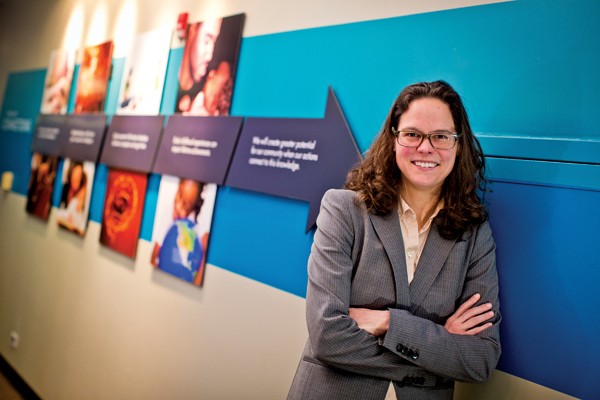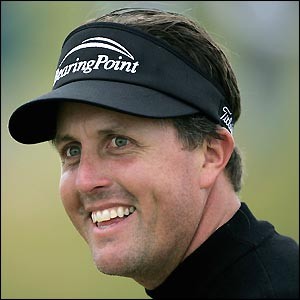Whether it’s because of an unexpected pregnancy, a divorce, or the death of a spouse, 47,000 households in Shelby County are headed by a single parent.
The repercussions can be significant. Children who are raised in single-parent households typically face more challenges than those who live with both parents. Statistically, they are more likely to perform poorly in school, face incarceration, rely on government assistance, and experience poverty, homelessness, and drug dependency.
According to 2010 U.S. Census Bureau data, there were 34,151 households in Memphis — nearly 40,000 countywide — led by single mothers with children under 18 years old. Single fathers led another 6,303 households — more than 7,000 countywide.
The Urban Child Institute (UCI) is a nonprofit organization dedicated to the health and well-being of children in Shelby County. According to UCI, about 60 percent of Shelby County children live in a home headed by a single parent. African Americans make up more than 60 percent of Memphis’ population and around 50 percent of the county’s population, but they comprise the majority of the area’s single-parent families.
 Justin Fox Burks
Justin Fox Burks
Catherine Joyce, UCI’s director of data management
“In urban areas, what we find is that it’s generally the black residents who are low-income [and/or] working one or two low-wage earning jobs [who] are more likely to become single parents,” says Catherine Joyce, UCI’s director of data management. “In terms of educational attainment, we do know that single parents, generally, are less likely to have higher educational attainment because having a child young, which is correlated to single parenthood, is also related to dropping out of high school. And looking at the incarceration of black males, that contributes to single parents.”
According to the Census Bureau’s report “Custodial Mothers and Fathers and Their Child Support,” about half (50.6 percent) of all black children in the U.S. live in custodial-parent families. That’s more than twice the percentage of white children (24 percent) who are raised by a custodial parent.
An estimated 14.4 million single custodial parents live with 23.4 million children under 21 years of age, nationwide. More than 80 percent of these custodial parents are women. But despite the odds, many here in Memphis and Shelby County are dispelling the myth that a single-parent household means failure.
Breaking the Mold
Nicole Gates is a single mother of four daughters. After 16 years of marriage, a divorce left her with primary custody of her children. She is ineligible to receive public assistance and is not paid child support from her ex-husband. In the early stages of her divorce, it was a struggle for Gates to pay for her family’s rent, utilities, food, and daycare.
“I had a point where I was living paycheck to paycheck,” 43-year-old Gates says. “We went through a rough period for a while, but it actually turned out really well. I took a lot of leadership classes and really started turning things around for myself.”
After taking a course provided by the Metropolitan Inter-Faith Association that teaches people how to establish their own business, Gates started More Than A Memory Events, an event-planning company. Gates is now an author and a public affairs specialist for Shelby County, a position to which she was appointed by Mayor Mark Luttrell.
“A lot of people think single moms are women who chose [to be a single mom] or got pregnant and the guy ran off. That’s not always the case,” Gates says. “A single mom could be a widow. In my case, I’m a divorcee. There are women who have not chosen to be there, but they still have kids. There’s various situations, and I think it’s wrong that people stereotype and think single moms are sitting balled up in the corner, crying the blues, and waiting for their next handout. That’s not true. I take a lot of pride in dispelling that myth.”
In 2009, Gates founded Successful Single Moms Memphis, an advocacy and empowerment organization for single mothers. The nonprofit helps mothers pursue advanced education, acquire entrepreneurial skills, and learn about financial literacy and wealth-building.
The organization provides free motivational meetings and access programs with names such as, Single Moms University and Mogul Mom Entrepreneur Training. Children can participate in the organization’s Smart Start Family Literacy and Angels in Action Community Service & Engagement courses. The programs help youth strengthen their reading and writing skills and learn how to contribute to their community.
Unplanned Pregnancy
One of the major contributors to single-parent households is unplanned pregnancy. Failure to use contraception is a leading cause of pregnancy, especially among teens. According to Teen Help, a group that provides national data and information on teen-related matters, 80 percent of teenage pregnancies in the U.S. are unplanned. More than 50 percent of all pregnancies in the U.S. are unintentional.
In Shelby County, more than 35 percent of all births list no father on the birth certificate, according to A Step Ahead Foundation, a local nonprofit that contributes resources to try and reduce the number of women having unplanned pregnancies. The Foundation provides free, long-acting reversible contraception (LARC) to women who don’t receive health coverage through insurance or other programs.
Qualifying women have a choice of three LARC methods — Nexplanon, Mirena, and ParaGard — all of which are removeable and more than 99 percent effective.
Nexplanon is a four-centimeter contraceptive implant that is implanted into the inner upper arm. It’s effective for up to three years.
Mirena is an Inter-Uterine Device (IUD), a T-shaped plastic frame inserted into the uterus that is effective for up to five years.
ParaGard, similar to Mirena, is also an IUD. It’s effective in preventing pregnancy for up to 10 years.
“We make it as easy as humanly possible for women to get quality birth control,” says Katy Langston, director of marketing and development for A Step Ahead. “We’ve helped pay [for contraception] for 3,400 women over three years. We see about 1,000 women a year. We’re educating the community on these effective methods, and [informing] them that they’re available to any woman in Shelby County.”
 Justin Fox Burks
Justin Fox Burks
Troynesha Cleaves and sons
A Mother of Two
Troynesha Cleaves is a 24-year-old single mother of two. After being shot in the stomach in 2008, she was told by doctors that it was unlikely she would ever conceive a child. Two years later, at age 20, she gave birth to her first son, Teshawn.
The unplanned pregnancy placed a burden on her financially and emotionally. Shortly after her son’s first birthday, they found themselves homeless.
“I was bouncing around from place to place, trying to find somewhere to get me and my child accommodated,” Cleaves recalls. “I was still working. I had to sit down and have a talk with God, and repent for what I had done wrong. After that, I started noticing change.”
Following a brief reconciliation with the father of her firstborn, Cleaves became pregnant again, and at 23, gave birth to a second son. That pregnancy was also unplanned. Aside from occasional texts and gifts, Cleaves says her sons’ father is absent from their lives.
But, like Gates, Cleaves has also managed to persevere. Fulfilling both parenting roles hasn’t been an easy job, but she’s embraced it. Cleaves balances her full-time job as a mom with a full-time job at FedEx, and is taking coursework at Southwest Community College. She’s majoring in radiology and aspires to be a sonographer.
Cleaves attributes her unwavering work ethic to her own mother, who she says raised her and her three siblings.
“She worked three different jobs to help keep us afloat,” Cleaves says. “Even though we were homeless a few times, staying in motels and all of that, I feel like we all turned out good.”
Pregnant at 16
Vonda Harris’ parents divorced when she was a toddler. Her mother received custody of her and her older brother. Harris’ dad remained in her life, and traveling between two different households became the norm.
But the divorce took a toll on her mother, who Harris says dedicated a lot of time to her job. Harris never talked with her mom about sex or contraception out of fear for how her mother would react.
At 15, Harris became sexually active. A year later, she was pregnant.
Going from being a 10th grader with minimal responsibilities to a mother was a life-changing experience.
“It’s crazy being only 16, and now having this responsibility for another human life,” says Harris. “Everybody you thought were your friends were not your friends anymore. People quit calling me, because they assumed I was too busy with the baby. There would be days where my child would be sitting right next to me and I couldn’t believe it. I would be like, ‘Wow, I’m a mom. I can’t do anything.'”
However, Harris and her son’s father were able to come to an agreement on collectively parenting their child. Harris, now 23, is their son’s custodial parent and receives child support.
Becoming a teenage mother caused Harris to grow up fast, but it hasn’t hindered her from excelling in life. She’s a University of Memphis graduate and is now employed at Le Bonheur Children’s Hospital. Her son, Bryson, is 6 and has a relationship with both of his parents. It’s something for which Harris is extremely thankful.
“If his father wasn’t there, I don’t know how I would be able to do the things that I’m doing now,” Harris says. “He steps in and takes the [father] role any time he needs to. He gets him every weekend. I don’t have to worry about money. I don’t have to worry about my son needing this and that. I’m just thankful to have so much help as a single parent, and I’m glad that I don’t have a bad story to tell.”
A Father’s Point of View
According to Children-and-Divorce.com, half of all kids in the U.S. will experience the divorce of their parents. In approximately 80 percent of those divorced families, the mother is granted custodial rights. This leaves fathers with the burden of attempting to maintain an appropriate presence in their children’s lives.
Perry Sponseller knows the hardships of being a non-custodial parent. He was married for seven years before his divorce. At the time, their daughter was 1 year old and their son was 3.
Sponseller pays child support. A court-approved parenting plan allows him to see his kids during the week, as well as every other weekend. Adapting to seeing his children only part-time wasn’t easy.
“It’s had its ups and downs,” 40-year-old Sponseller says. “But I think I’ve adjusted to it quite well. What is hard about being a single parent is just not having that extra person around to help raise your children the way kids need to be raised. Having a divided household and doubling the expenses and overhead of family living on the same income you already had, that’s very difficult to do.”
Sponseller says he and his ex-wife have a better relationship as co-parents than they did while they were married, and he takes pride in being a father.
“Once I realized that we were getting a divorce, priority number one for me was to make sure my parental presence wasn’t tacked,” Sponseller says. “I just wanted to make sure that I had as much time as I could have with my kids. I didn’t really care about anything else.”
A Fatherless Son
According to Census data, one in three American children do not have fathers in their lives. Ryan Adams’ parents divorced when he was 2 years old. From his early childhood until his sophomore year at Mississippi State University, his father was in prison for a drug-related offense. Not having a male figure around profoundly impacted Adams, and it left his mother with one of the toughest jobs a woman can have: teaching boys how to become men.
“It’s often a unique situation when you’re dealing with a mom playing the role of a mother and father, because she has to be tough, and she has to be nurturing,” says Adams, now 28. “No matter how much your mom tries, she can’t teach you how to be a man. There were questions she didn’t have answers to, and you kind of had to use life lessons to teach yourself in certain areas. It taught me what kind of man I don’t want to be. I want to be there whenever I have kids, because I know what it’s like to not have a father growing up. It was tough, but I think it helped me become a better man.”
Instead of allowing his trials to lead him away from a positive lifestyle, Adams used them as fuel to prosper. He triple majored at MSU in economics, finance, and management. And he’s currently working on his second master’s degree at Christian Brothers University.
He encourages other young people being raised in single-parent households not to let the absence of a parent hinder their success, but to use it as motivation to make a positive difference in their lives.
“Don’t become a victim to your circumstances, because there is light at the end of the tunnel,” Adams says. “There is opportunity out there to be better. If you want something, go get it. Remain encouraged. I guarantee that life is full of disappointments, but it’s about how you respond to those disappointments that determines true character.”

 Justin Fox Burks
Justin Fox Burks  Justin Fox Burks
Justin Fox Burks